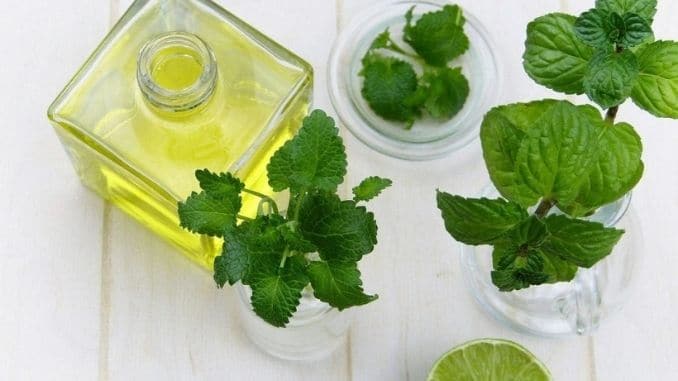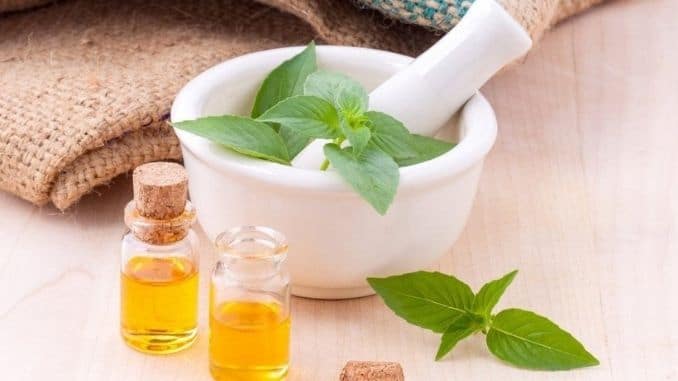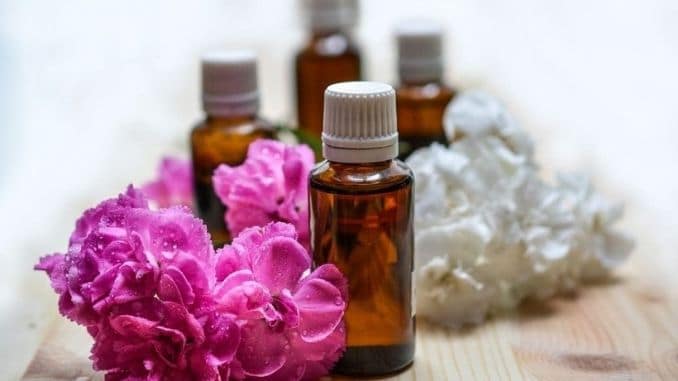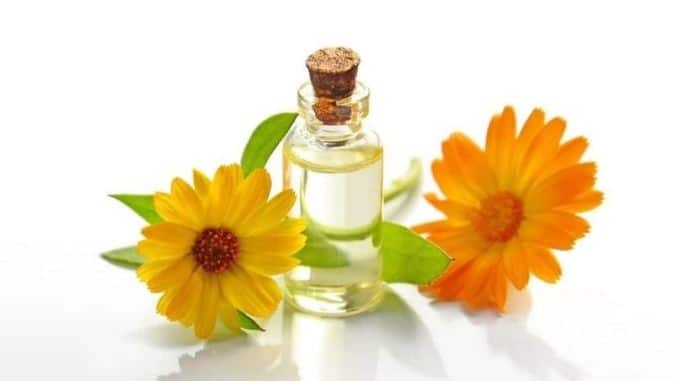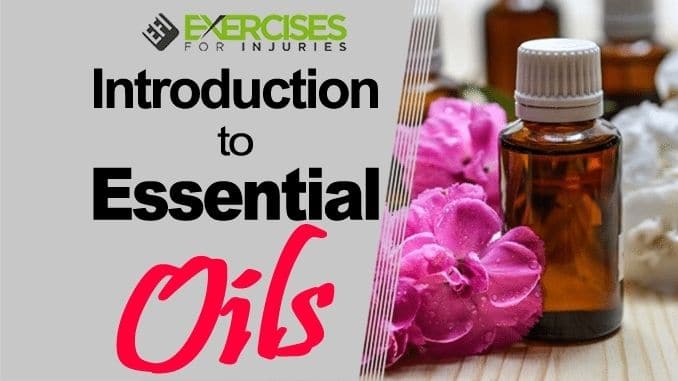
Long before we had antibiotics and other modern medicines, human beings turned to plants for healing. They used every part, from the leaves and flowers to the stems and roots. In time, there developed a wide range of knowledge about which plants could help ease an upset stomach, which worked to reduce the pain of a headache, and which could help a wound to heal quickly.
Early humans used these plants in many ways, eating some, making teas out of others and fashioning poultices out of those that could help when applied topically. However, they also found one other method of delivery that proved to be very effective — inhalation.
The sense of smell is one of the most powerful we have. You’ve probably experienced that power when smelling baked cookies that reminded you of your grandmother’s home or a perfume that took you back to days spent with a lost love. However, the smell isn’t just about memory or orienting ourselves in the world. Moreover, depending on what we smell, it can have a beneficial effect on the body and mind.
The First Appearance of Essential Oils
History tells us that the Egyptians were the first culture to use the aromatic extracts of plants (called “essential oils” today) for both spiritual and physical well being. As early as 2000 B.C. they were using these extracts for beauty care and medicinal benefits as well as for religious ceremonies.
Today, modern research has found that both inhaling and topically applying essential oils can have real, measurable benefits for our physical and emotional health. Moreover, if your goal is to focus better, get more sleep, reduce allergies and ease stress, the solutions may be right in front of your nose.
What Are Essential Oils?
Essential oils come from the natural oils in plants. What you find in the little bottles is a highly concentrated form of those oils, which is why you need to use only a little to enjoy the effect.
The words “essential oil” actually came from the original “quintessential oil.” The word “quintessence” means the pure and concentrated essence of something but also refers to the “fifth element” as noted in ancient philosophy. There are the four elements — fire, earth, air and water — and then the fifth element, which was thought to be the spirit or life force. In traditional medicine, essential oils were thought to contain the spirit or life force of the plant.
To make essential oils, the plant parts like leaves, flowers, and stems are put through a process of distillation by steam or water, after which the highly concentrated portion of the oil is separated or “extracted.” This oil contains the original plant components, including the smell and healing properties.
The quality of that essential oil depends on how the plants were grown and harvested and how the oil was processed. It’s important to look for quality oils because they are not all the same. We have some tips below for how you can find the best ones.
What Can You Use Essential Oils For?
You can use essential oils for a variety of health benefits. You can use each oil alone or in combination with others to produce the desired effect. The important thing is to realize that these oils can be powerful and to be sure that you’re using them safely.
In general, there are three ways you can use essential oils:
-
Smell them
The practice of aromatherapy is based on the fact that essential oils are absorbed quickly by the smell receptors. These receptors have aJ direct link to the part of the brain that controls emotions, behavior, and memory.
-
Put them on your skin
When you apply essential oils to the skin, they can penetrate it easily to absorb into the deeper layers and sometimes even into the bloodstream. Today, cosmetic products frequently use essential oils to enhance skin condition and delay premature aging. Many are also helpful in healing wounds.
-
Consume them
Essential oils are very popular today in herbal supplements. What conditions may be improved by essential oils? There are many, but this is a quick peek here at some of the most impressive effects:
-
Sleep
If you’re struggling with insomnia, you may be better off using essential oils instead of sleeping pills. Moreover, in a 2014 review, researchers found that oils helped people to fall asleep and stay asleep. Lavender was the most commonly studied for sleep. An earlier study also found that lavender — when inhaled —worked as a mild sedative and helped promote deep sleep.
-
Allergies
Inhaling certain essential oils can help reduce allergy symptoms. In a 2016 study, researchers found that when participants inhaled an essential oil combination for five minutes twice daily for seven days, they experienced improvements in not only nasal symptoms, including stuffy nose but in fatigue and sleep quality as well. Moreover, the oil combination included sandalwood, geranium and almond oil. Other oils typically recommended helping ease allergy symptoms include peppermint, Frankincense, lemon, and eucalyptus. A 2012 study found that a nasal spray containing lemon essential oil helped treat seasonal allergies.
-
Anxiety and stress
If you’re going through a stressful time in your life, you may want to ask your nose for help. Several essential oils help ease stress and induce relaxation. Studies have found that lavender, for example, in addition to helping you get to sleep, may also help stabilize mood. Another study found that essential oils helped reduce anxiety levels in patients admitted to the intensive care unit. Moreover, other effective oils for reducing stress and encouraging relaxation include bergamot, ylang-ylang, and jasmine.
-
Focus
Moreover, if you had a rough night, you’re trying to concentrate, and it’s just not working, essential oils can help. Additionally, several essential oils have shown the ability to improve focus and concentration. In a 2008 study, researchers split participants into three groups: those exposed to the aroma of peppermint, those exposed to the aroma of ylang-ylang and those exposed to no smell at all. Results showed that peppermint enhanced memory and increased alertness. Ylang-ylang decreased alertness but increased calmness. In a 2017 study, researchers found that both rosemary and lavender helped increase short-term memory in secondary school students.
This gives you a sample of what essential oils can do for you. There are many more applications. If you get yourself a diffuser, you can experiment with various scents until you find those that work best for you.
How to Find High-quality Essential Oils
The quality of essential oils often varies widely. Even with the most conscientious manufacturing, there are so many things that can affect the final product, including:
- The growing season, soil conditions and rainfall
- Whether or not pesticides were used
- The geographic location of the growing area
- When the plants were harvested
There are other considerations as well that are more in the manufacturers’ control. These include:
- How the plants were stored after harvesting
- How quickly they went from farm to distillation
- How the plants were processed
- How the oils were packaged and handled
- How long the oils have been stored before they get to you
The distillation process can be particularly impactful on the final oils. Unfortunately, some manufacturers “adulterate” the oils, which means they mix other inferior oils in with the essential oils to increase profits. Others are not conscientious about where the original plants come from or how the oils are processed.
Moreover, to find the best, quality oils, look for:
-
Manufacturers who specialize in essential oils
They are more likely to provide pure oils and to be concerned that their products are of high quality since that is a primary source of their business.
-
The botanical name
Your eyes may blur when you read something like Rosmarinus officinalis, but finding the botanical name is a good thing on an essential oil. There are several species of lavender, for instance, so you want to be sure you’re getting the right one — or at least be sure the manufacturer is correctly identifying each.
-
The country of origin
Where did the original plant come from? You may not be too concerned about that, but those who specialize in aromatherapy know that the quality of the original plant may vary from country to country, similar to how wines from one country may be more authentic than others. Moreover, if you see the country of origin, you know that the company is used to marketing to knowledgeable aromatherapists, which is a good sign.
-
A statement of purity
How pure is the oil? Was it adulterated? Not all companies will tell you, but you should see something like “100% essential oil.”
-
An expiration date
Pure essential oils gradually lose their essential components over time, especially when exposed to air. Moreover, an expiration date lets you know that the manufacturer is aware of this and is being transparent about how old the oil is.
-
Organic
Organic products, in general, have fewer pesticides, so it’s always best to look for organic essential oils. Organic standards vary from country to country, but most include limitations on pesticides.
-
Wildcrafted
This means the plants were gathered from the wild. These oils are also believed to be less likely to contain pesticides.
-
Testing
Moreover, check the website to see if the manufacturer runs gas chromatography and/or mass spectrometry tests on its oils. These tests commonly ensure that the oils meet the expected quality standards. Many companies will provide these test reports on their websites or at least by request.
Finally, ignore words like “therapeutic grade” or “clinical grade” as these are merely marketing terms and are not standardized.
For your guide to the best foods to heal your body, check out The Best Foods that Rapidly Slim & Heal in 7 Days, here!
.

